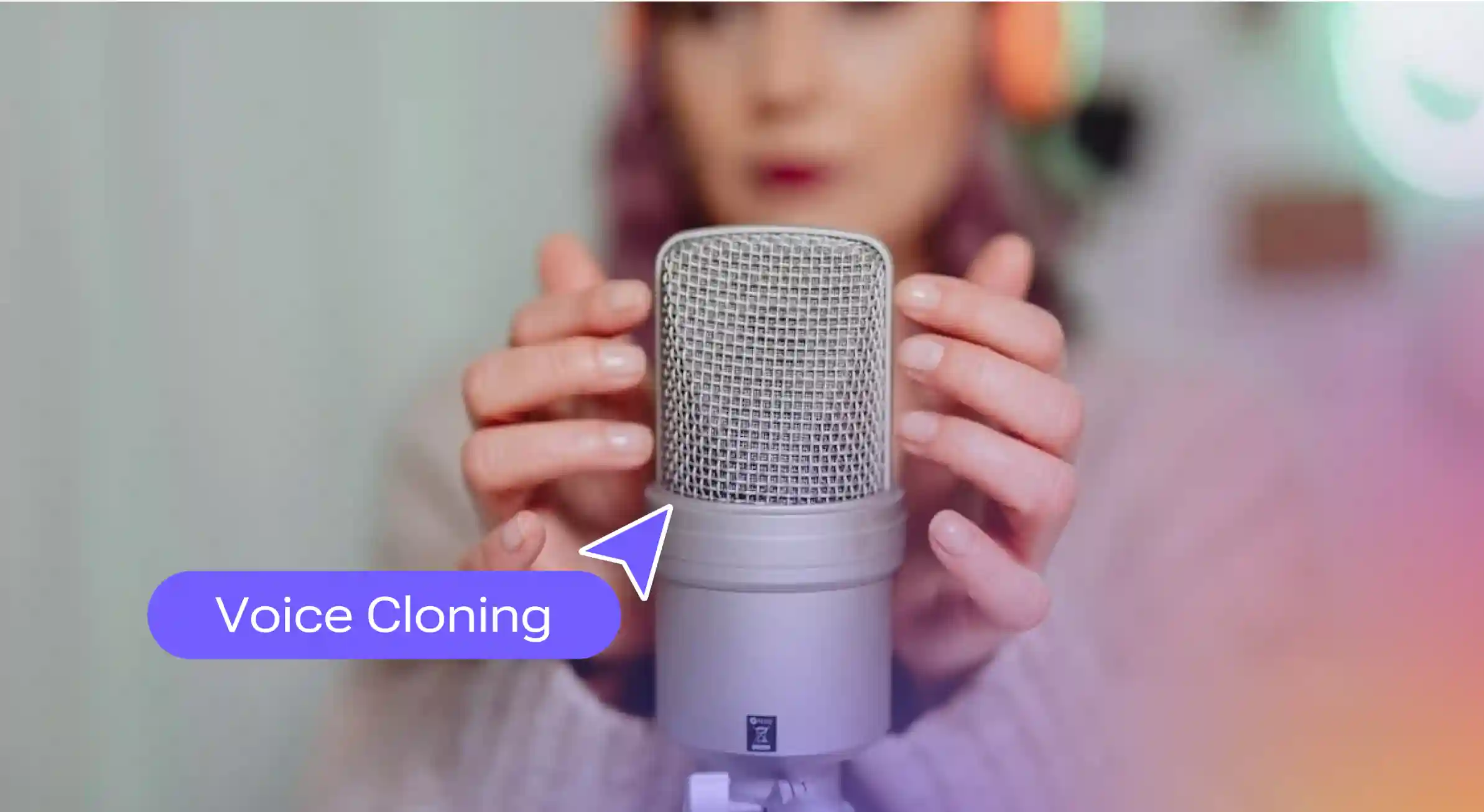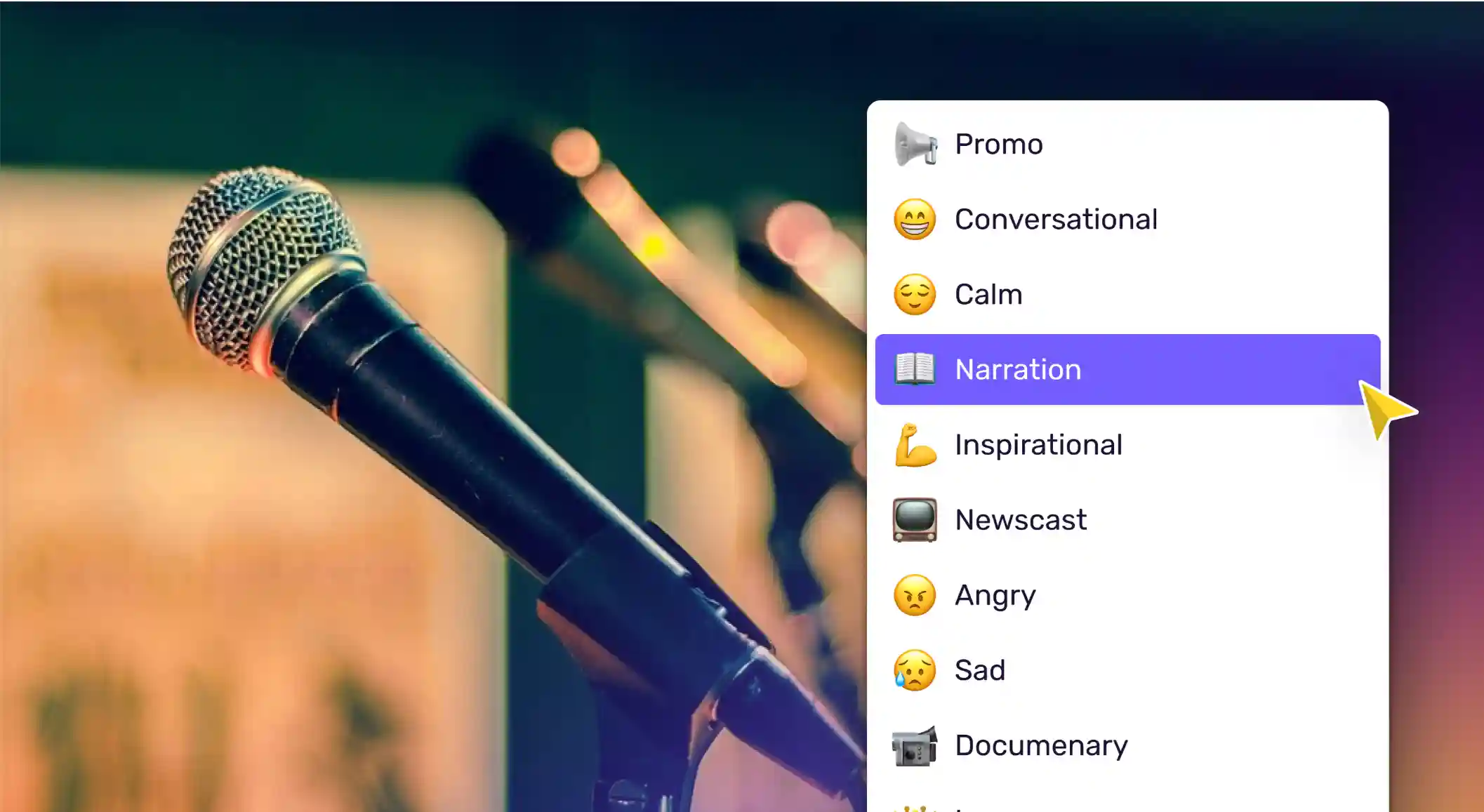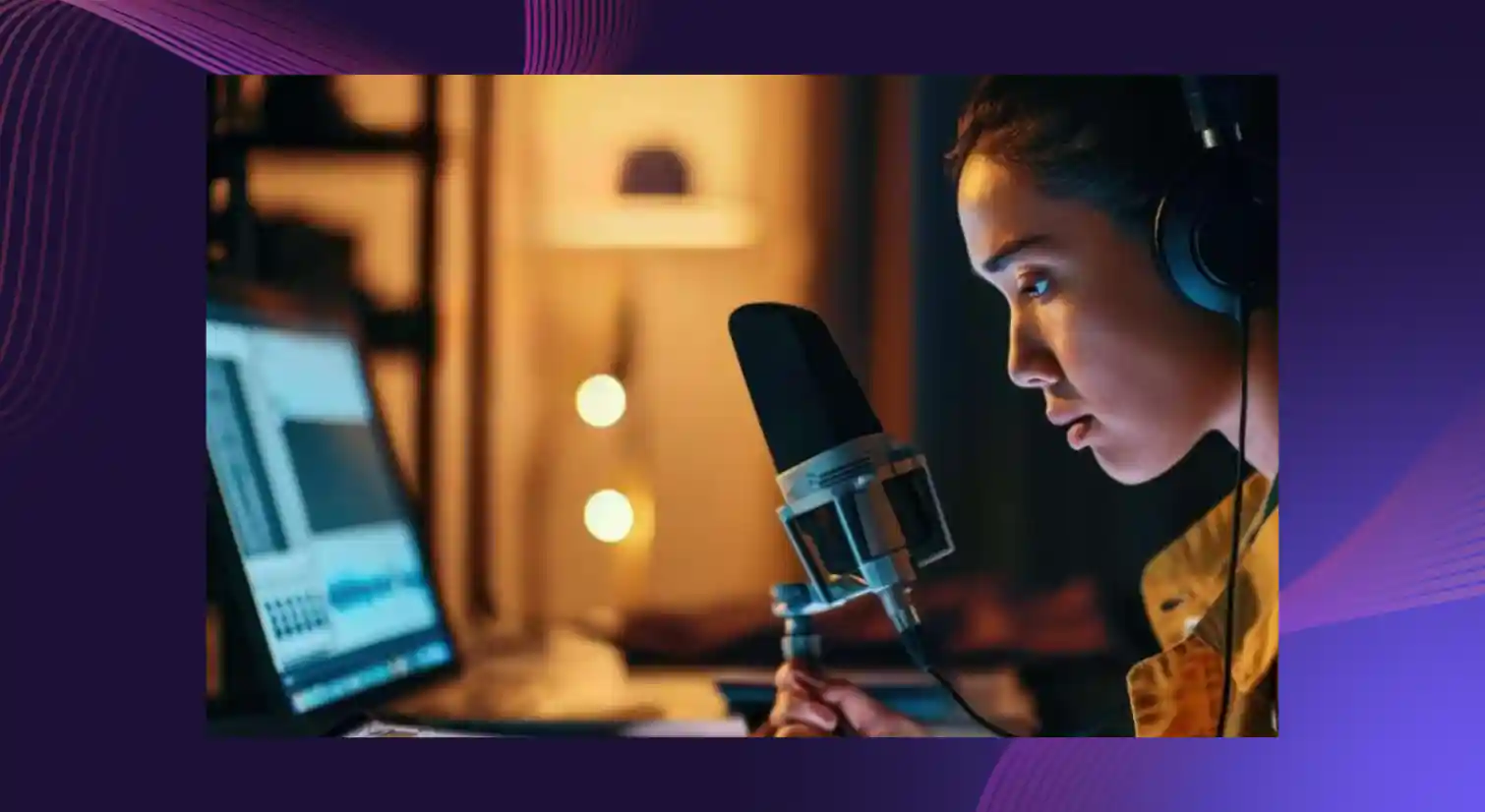What is Voice Cloning? An Easy Explanation

What is Voice Cloning? An Easy Explanation
Voice cloning refers to creating a digital version of a person’s voice. These human voices are replicated using artificial intelligence, machine learning algorithms, and speech synthesis.
Before voice cloning technology came along, reproducing someone’s voice and getting it right was a bit of a nightmare. From booking professional voice actors to finding a sound-proof room, the hope of achieving natural-sounding results would feel like a distant dream. And if the outcome needed changes? It was right back to square one.
Today, these inconveniences are a thing of the past. With AI-powered voice cloning technology, anyone can replicate a specific individual’s voice using a few samples. AI and machine learning can recreate a digital version of someone’s voice that sounds almost real.
Whether it’s for audiobooks, virtual assistants, or bringing back a lost voice, cloning technology uses AI voice synthesizers to make things faster. The software doesn’t just copy how someone sounds, it also picks up on tone, pace, speaking style, and subtle intonations. All you need to do is enter written text, and it’ll speak in the target voice as if the person were present right there.
In this article, we’ll learn what is voice cloning, how AI makes it better, and the role of a tool like Murf AI in helping you create an exact clone of your own voice.
How Does Voice Cloning Work?
Basically, it learns the various ways in which a person talks, the way they sound, their tone, pitch, and rhythm. Based on this information, it generates a digital voice that can speak new sentences using text input.
Remember when you heard your favorite e-book being narrated to you through your headphones? Or taking cooking instructions from Google assistant on your smart speaker? That personalized narration was a cloned voice!
AI voice cloning work has indeed come a long way over the years. The early versions sounded robotic. Voice actors had to record hours of audio for video games or ads. But now, cloned voices can capture human emotions, accents, and a person’s unique speaking style in minutes. Specialized cloning software, like Murf, can be used for this purpose.
Nowadays, you’ll find this technology being commonly used in virtual assistants, the entertainment industry, films, video games, podcasts, and even as assistive technology for people with speech impairments.
Role of AI in Voice Cloning
Artificial intelligence is playing a big role in the continuous development of voice cloning technology. Its algorithms don’t stop at recording someone’s voice; they also study it with the help of deep learning and neural networks.
Here’s how it works: AI-backed software breaks down recorded speech into various patterns such as tone, pitch, pauses, and pronunciation. These are called extracted features.
To make AI voice cloning work flawlessly, the software analyzes the voice or audio sample, and then converts text into speech using the same voice. This results in the creation of a digital voice or a cloned voice.
AI technology also helps reduce background noise and smooth out speech so it sounds more natural, like a human were speaking. The ultimate goal is to make it sound like the original voice, even if the person never uttered those exact words.
Advantages of Using Voice Cloning Technology
Voice cloning may have started off as an experiment, but today, it has become a useful technology used in everyday life by professionals, creatives, and those who need a consistent voice. Here’s how it is helping people across industries create voices that sound real, natural, and personal.
Reduces Recording Costs and Time
Earlier, any kind of voice work, including replication, would take a lot of time and money. Expensive studios had to be booked, voice actors had to be engaged, and multiple takes were often the norm. Even making a single change in the recording would mean starting the process from scratch. With voice cloning software, however, creating new speech is as simple as writing a text input. Simply type the words and the software will play them back for you. No need for re-recording or buying costly recording gear.
Helps Those Who Cannot Speak
People with speech impairments or those with vocal cord injuries have a lot of trouble using their voice. Voice cloning can make all the difference here. It can use earlier recordings of their original voice to create a digital clone that sounds like them. This was unthinkable in the past, but voice technologies can make speech-impaired people feel like themselves again.
Establishes a Consistent Brand Voice
Many companies use virtual assistants and automated systems for customer and personal interactions. Needless to say, these digital voices should sound the same across the board. When you clone a voice with AI technology, you can use it across applications, websites, customer support platforms, smart devices, and more. A human-like voice helps build customer trust as people connect better with realistic voices rather than robotic ones.
Transcends Language Barriers
Does your voice work involve creating the same message in 10 different languages? Does this mean you’ll need to hire multiple voice actors for the job? Not when you use voice cloning. If you’re into creating marketing videos, product demos, and even training content, you should find voice cloning technology extremely useful. You can easily clone one voice and translate it into different languages while retaining the tone and feel.
Enables Creatives to Perform Better
Professionals in creative fields such as writers and game developers can use voice cloning to add dimension to character voices, include dialogues, or even make changes to the speech. All this can be done without the hassle of re-hiring voice actors. Incorporating a new line for a game character is as simple as typing it. The cloned voice will recite it, resulting in quick and precise results.
Makes Learning More Accessible
Sometimes, people can learn better by listening. Also, some people struggle with reading. This is where voice cloning can be a huge blessing as it converts written text into natural-sounding spoken words. Educators and authors can embed cloned voices into their lessons or instructions, making their content easily accessible to all types of learners.
Is Voice Cloning Ethical?
While voice cloning comes with its own set of benefits, many ethical implications have also been raised over the years. As with any technology, voice cloning isn’t unethical. But it is important to maintain the thin line between creating harmless and harmful content with it.
Here are some major legal implications and ethical considerations associated with voice cloning.
Permissions and Consent: Using someone’s voice without their prior permission is a blatant disregard and violation of that person’s privacy, even if they’re a celebrity. It can also warrant legal action.
Impersonation and Deception: Voices of influential people can be cloned and used to spread false information, conduct fraudulent activities, and even manipulate impressionable people. Scam phone calls are a prime example of this.
Deepfakes and Rumors: Phoney audio clips consisting of synthetic voices that sound authentic can be used to create doctored audio and videos. This can cause a lot of trouble as it is difficult to tell the difference between real and fake.
Impact on Jobs: It’s no secret that more and more brands are now using natural-sounding cloned voices in video games, movies, and advertising. As a result, voice actors stand to lose out on employment opportunities.
The advent of voice cloning has been extremely beneficial, but has also raised many questions related to its proper use. Clear legal and ethical laws/guidelines have become the need of the hour to prevent the potential misuse of voice cloning. Transparency, consent, and boundaries are vital to the responsible use of this technology.
Murf AI Makes Voice Cloning Easy and Ethical
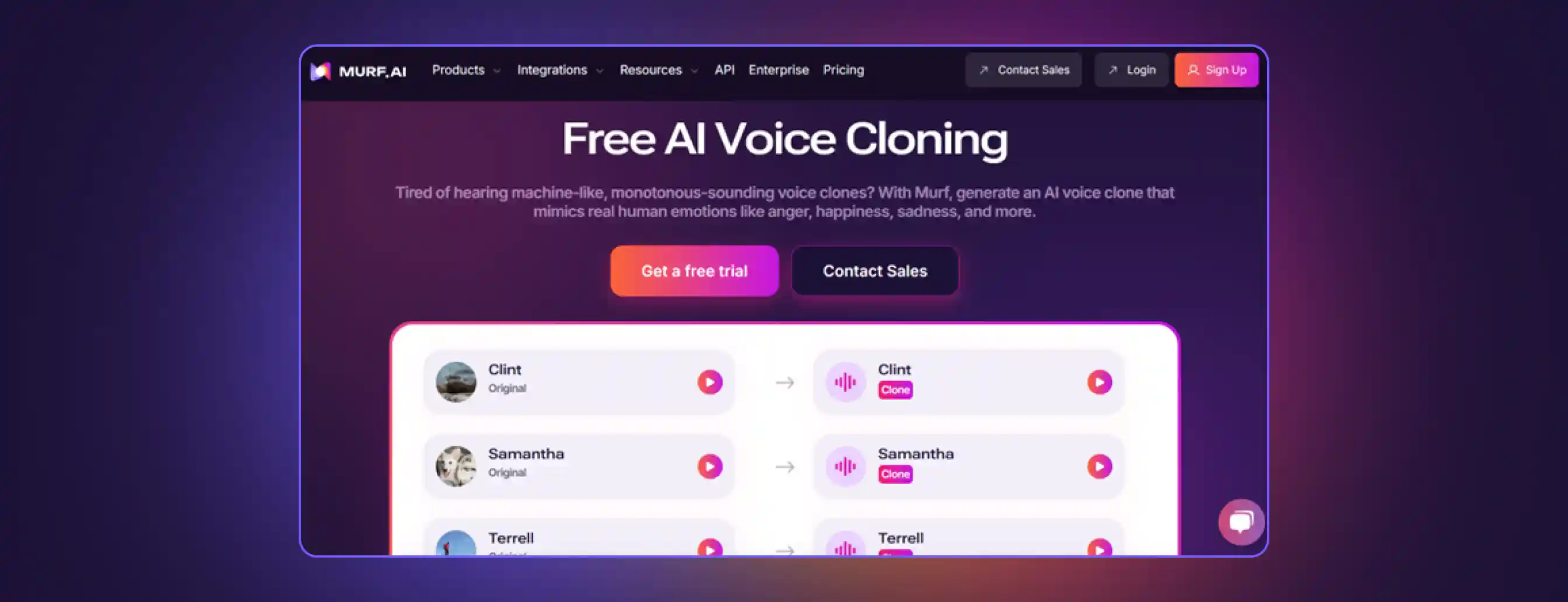
If you're looking to replicate human voices while upholding industry standards and staying within the ethical boundaries, Murf is the best solution!
It allows you to generate an AI voice clone that uses text to speech, and mimics real human emotions like anger, happiness, sadness, and more. Our software delivers unmatched realism in voiceover creation by capturing the nuances of your speech with precision.
Murf AI offers advanced voice and speech synthesis, seamless editing, 200+ voice options, and other robust features so you can create high-quality, natural-sounding voice cloning minus the stress of constant recording.
You’ll be able to clone voices in more than 20 languages, accents, and regional dialects ensuring the output sounds authentic. Murf also enables easy customization as you get complete control over the tone, pitch, and speech of your output for any use cases.
To generate voice clones, all you need to do is upload a pre-recorded audio sample or record your own voice. Murf’s AI algorithms will then create ready-to-use, high quality voice clones in just a few minutes.
What’s more, our AI models and voice data are securely encrypted. Your data is stored on AWS, which is compliant with PCI-DSS, SOC 1/2/3, FedRAMP, GDPR, HIPAA/HITECH, and more. Data transfers use HTTPS with SHA-2 compliant encryption and TLS for end-to-end security.
Want to try voice cloning yourself? Start with our free demo!
Depending on how it is used, voice cloning can be either a bane or a boon. A powerful tool like Murf can help ensure you’re using this technology securely and ethically. Not only can it simplify the entire cloning process, it can also produce quick and precise results, and keep your information secure as well as compliant.
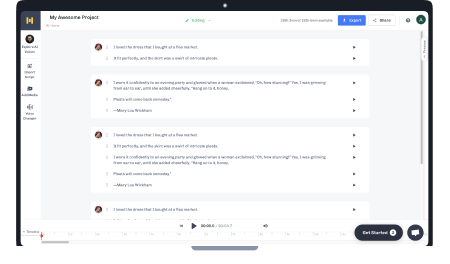
Frequently Asked Questions
What is voice cloning? And how does it work?
.svg)
Voice cloning enables the creation of a digital replica of a person’s voice. This advanced technology uses AI to mimic the person’s tone, pitch, and speaking style to produce a natural sound.
How is voice duplication possible?
.svg)
For starters, technologies like machine learning and speech synthesis are used to analyze a recorded speech sample. Next, feature extraction from the voice data is performed. Then, AI builds a model that’s capable of speaking the new text like it was the original voice.
How does voice cloning work?
.svg)
AI models are trained on a person’s recorded speech. Using this sample, neural networks recreate the same voice and convert the written text (fed into the system) into speech. Ultimately, what you get is a voice that sounds just like the original speaker.
What is a major cybersecurity concern when it comes to voice cloning technology?
.svg)
Unfortunately, cloned voices can enable fraudsters to perform illegal activities like impersonating another person in scam calls. Such misuse of AI voice cloning can result in cybersecurity and identity theft issues. Stringent safeguards need to be put in place to prevent this.
What is voice cloning used for?
.svg)
Voice cloning is used in virtual assistants, audiobooks, gaming, and assistive technologies to enable content creation, accessibility, and customer interactions across various sectors.




